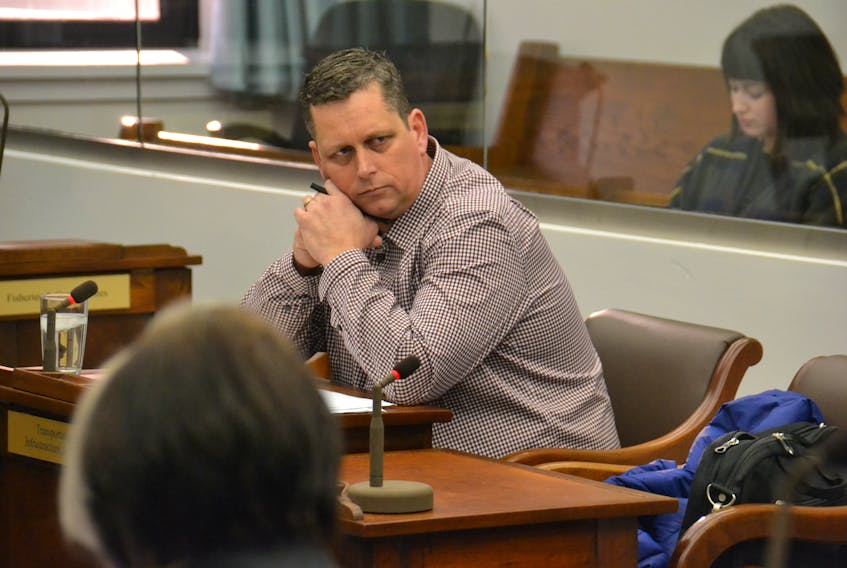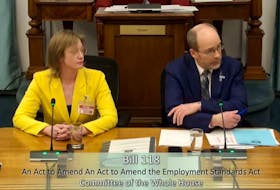CHARLOTTETOWN, P.E.I. — Two organizations that serve marginalized people said they support a basic income guarantee pilot in P.E.I. but said such a program should not replace existing supports for people facing addictions and mental health issues.
The leaders of the Native Council of P.E.I. and the Upper Room Hospitality Ministry offered their thoughts and recommendations on the possibility of a basic income guarantee to members of the legislative standing committee on poverty on Wednesday.
The committee is tasked with providing costed recommendations related to a basic income pilot on P.E.I.
Basic income is an experimental anti-poverty policy that would give a cash payment to all individuals who earn below a certain amount, regardless of whether they already have a job.
Lisa Cooper, president of the Native Council, and Matthew MacDonald, a policy analyst, offered recommendations related to off-reserve and non-status Indigenous people on P.E.I.
“We are now the most impoverished, more impoverished than those that live on-reserve. And this is often forgotten in most programming, be it in P.E.I. and in Ottawa," Cooper told the committee.
"The funding doesn't seem to come to us."
MacDonald said individuals facing addictions and mental health issues would need additional supports if they received the basic income payments.
"Without proper supports in place like timely access to mental health and addictions support, such individuals, participants in the proposed project may be at risk of endangering their health with a new source of income," MacDonald said.
MacDonald said the specific barriers faced by off-reserve Indigenous people should be kept in mind.
He referred to a 2015 Supreme Court of Canada decision that found that the federal government had a duty to recognize the treaty rights of non-status people, or Indigenous people who may not be a registered member of a band.
Cooper and MacDonald recommended that a basic income pilot be offered to individuals within the age group of 18-64, that it consider people from diverse and marginalized backgrounds and that the model be a “negative income tax model.”
This means it would be offered to people who earn below a certain amount. Both also suggested community organizations be directly involved in recruiting for the pilot and offered the services of NCPEI for this purpose.
Mike MacDonald of the Upper Room Ministry also said a basic income program would benefit low-income individuals he sees every day.
The organization runs a soup kitchen that serves 12 meals a week, as well as a food bank.
But MacDonald also cautioned against looking at basic income as a replacement for other social services, such as mental health and addictions counselling, housing supports and education programming.
“Basic income is not the only answer, but it’s certainly part of the answer,” MacDonald said.
MacDonald said he believes such a program should be offered for people living in poverty throughout P.E.I.
He said having a cash payment that would help people take care of their food and shelter needs would relieve a lot of stress.
MacDonald said his organization tends to offer support to many individuals within the age range of 18-64, but also said some as young as 15 are also fed.
He said he has noticed an increase in recent immigrants accessing services and said this group accounts for about 15 per cent of his clients.









